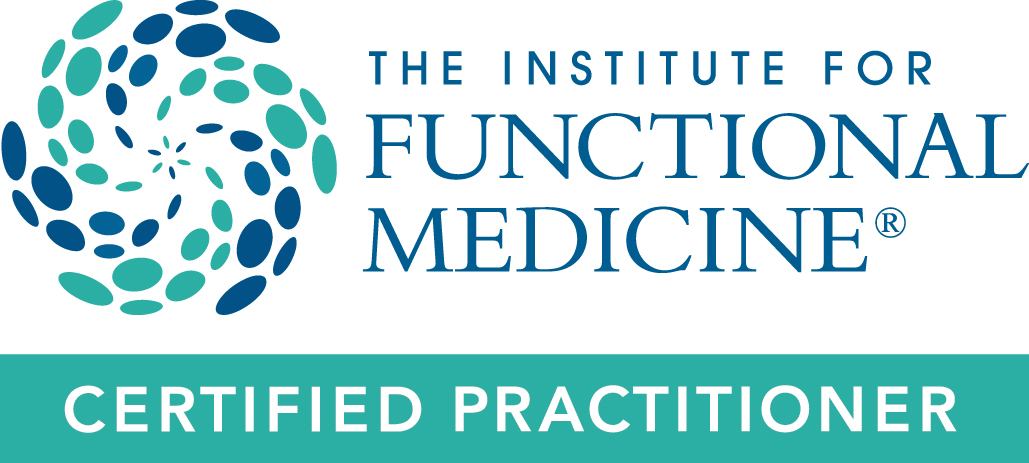How Stress Affects Gut Health
Have you ever been so nervous that you got sick to your stomach?
Did you know that stress can cause so much more than butterflies in our stomachs?
Over the long term, stress can negatively impact the health of our gut.
Why should I be concerned about the health of my gut?

Our gut is home to trillions of bacteria, and other microorganisms called the gut microbiome. These microorganisms are crucial in digestion, immune function, detoxification, and overall health.
In addition, those trillions of microorganisms can influence how we feel through the chemicals they make. So, not only does our stress impact our gut, our gut can, in turn, affect our mental health.
More and more research has demonstrated a link between gut health and chronic diseases, such as diabetes, obesity, atrial fibrillation, autoimmunity, cancer, and more. So, if we want to be healthy, we also need our gut microbiome to be healthy.
Through the gut-brain axis, stress can adversely impact our gut health:
1. Digestion: Stress can inhibit the vagus nerve, our rest and digest nerve, which stimulates the production of digestive enzymes from our stomach, pancreas, and bile ducts. When eating under stressful conditions (for example, inhaling a sandwich in your car on the way to a meeting), we are not digesting our food properly and not getting all the nutrients we can.
2. Gut Motility: Stress can disrupt the regular contractions of the digestive muscles, leading to changes in gut motility. Some individuals may experience increased contractions, resulting in diarrhea or more frequent bowel movements, while others may experience decreased contractions, leading to constipation.
3. Gut Permeability: Stress can increase the permeability of the intestinal lining, often referred to as "leaky gut." When the gut becomes more permeable, toxins, bacteria, and undigested food particles can pass through the intestinal barrier and enter the bloodstream. These particles, considered foreign to our immune system, can trigger an immune response and contribute to inflammation or autoimmunity.
4. Microbiota Imbalance: For our gut to work optimally, the gut microbiome must have a good balance of microorganisms — more “good” actors than “bad” actors. Stress can disrupt this balance, promoting the growth of too many “bad” actors, leading to dysbiosis. Dysbiosis, an imbalance of bacteria, can negatively affect the gut’s function and has been
associated with various gut disorders, such as irritable bowel syndrome (IBS).
It is important to note that the relationship between stress and gut health is complex and can vary from person to person. Some individuals may be more susceptible to stress-induced gut issues than others.
Managing stress through techniques like exercise, meditation, and good-quality sleep, can help mitigate the negative impact on gut health. Additionally, a healthy diet rich in fiber and plants can support a diverse and balanced gut microbiota, which may help enhance gut resilience to stress.
Join me on my next webinar to learn more about the impacts of stress and ways to manage your stress better! Register here:
Please register for Stress Less, Live Well! on Jun 1, 2023 12:00 PM HST at:
https://attendee.gotowebinar.com/register/1213202660554265179
References:
- Mayer EA, Tillisch K, Gupta A. Gut/brain axis and the microbiota. J Clin Invest. 2015
Mar 2;125(3):926–38. doi: 10.1172/JCI76304.
2. de Vos WM, Tilg H, Van Hul M, Cani PD. Gut microbiome and health: mechanistic
insights. Gut. 2022 May;71(5):1020–1032. doi: 10.1136/gutjnl-2021–326789. Epub 2022
Feb 1. PMID: 35105664; PMCID: PMC8995832.
3. Agus A, Clément K, Sokol H. Gut microbiota-derived metabolites as central regulators
in metabolic disordersGut 2021;70:1174–1182
4. Kesika P, Suganthy N, Sivamaruthi BS, Chaiyasut C. Role of the gut-brain axis, gut
microbial composition, and probiotic intervention in Alzheimer's disease. Life Sci. 2021
Jan 1;264:118627. doi: 10.1016/j.lfs.2020.118627. Epub 2020 Oct 22. PMID: 33169684.
5. Monika Gawałko, Thomas A Agbaedeng, Arnela Saljic, Dominik N Müller, Nicola
Wilck, Renate Schnabel, John Penders, Michiel Rienstra, Isabelle van Gelder, Thomas
Jespersen, Ulrich Schotten, Harry J G M Crijns, Jonathan M Kalman, Prashanthan
Sanders, Stanley Nattel, Dobromir Dobrev, Dominik Linz, Gut microbiota, dysbiosis, and
atrial fibrillation. Arrhythmogenic mechanisms and potential clinical
implications, Cardiovascular Research, Volume 118, Issue 11, July 2022, Pages
2415–2427, https://doi.org/10.1093/cvr/cvab292
6. Foster JA, McVey Neufeld KA. Gut-brain axis: how the microbiome influences anxiety
and depression. Trends Neurosci. 2013 May;36(5):305–12. doi:
10.1016/j.tins.2013.01.005.
7. Shaheen WA, Quraishi MN, Iqbal TH. Gut microbiome and autoimmune disorders. Clin
Exp Immunol. 2022 Aug 19;209(2):161–174. doi: 10.1093/cei/uxac057. PMID:
35652460; PMCID: PMC9390838.
For more useful information on functional holistic health, you can visit our FREE video library here.
About the Author:
Dr. Eri Shimizu is a board certified in Internal Medicine Doctor and soon will be certified through the Institutes of Functional Medicine. She earned a Bachelor of Science in Environmental Bioengineering from the University of Hawaii at Manoa and graduated summa cum laude from Creighton University Medical School. She completed her Internal Medicine residency at UCLA and worked at a Los Angeles county hospital. In 2012, she returned to Hawaii and served as a Hospitalist at Maui Memorial Medical Center. Maui is now home with her husband, two children, and a fighting fish named Rainbow.
Schedule a FREE Functional Medicine Health Consult with Dr. Eri.








